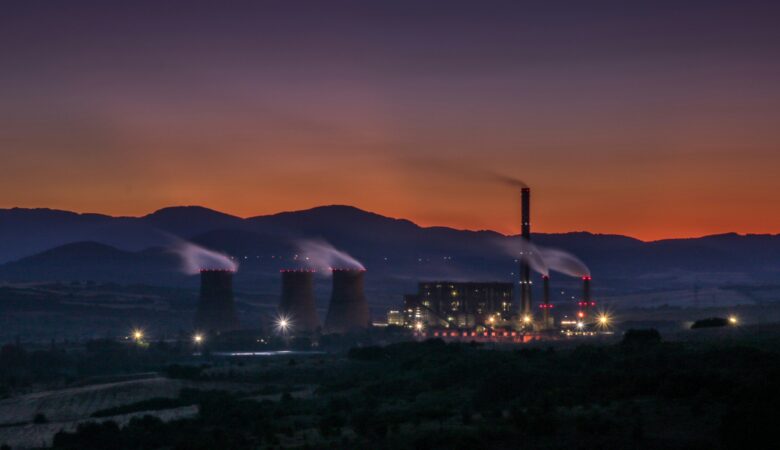In Nigeria, energy security is more than just a policy objective; it is a cornerstone of national stability, economic growth, and social development. As Africa’s most populous country and one of its largest economies, Nigeria’s demand for energy is enormous and continues to grow. However, the country faces significant challenges in ensuring a reliable and sustainable energy supply for its citizens and industries. Addressing these challenges has become a national priority, with the private sector, including companies like Rhinobay Energy, playing a crucial role in shaping Nigeria’s energy future.
The Importance of Energy Security
Energy security is defined as the uninterrupted availability of energy sources at an affordable price. For Nigeria, achieving energy security is critical for several reasons:
- Economic Growth: Energy is the lifeblood of any economy. It powers industries, drives technological advancements, and enables commerce. Without a stable energy supply, Nigeria’s economic growth is hampered, affecting everything from large-scale manufacturing to small businesses.
- Social Stability: A reliable energy supply is essential for maintaining social stability. It ensures that basic services such as healthcare, education, and public safety can function effectively. Energy shortages can lead to social unrest, particularly in a country where the population is rapidly expanding.
- National Security: Energy security is directly linked to national security. Dependence on imported energy or unstable energy supplies can make a country vulnerable to external pressures and domestic disruptions.
- Sustainable Development: As the world moves towards cleaner energy solutions, Nigeria must ensure that its energy security aligns with global sustainability goals. This requires a balanced mix of traditional and renewable energy sources.
Challenges to Energy Security in Nigeria
Despite its vast natural resources, Nigeria faces several challenges in achieving energy security:
- Infrastructure Deficiencies: Nigeria’s energy infrastructure is outdated and inadequate. The country’s power generation capacity is insufficient to meet the demand, and the transmission and distribution networks are plagued by inefficiencies and losses.
- Dependence on Fossil Fuels: Nigeria’s energy mix is heavily skewed towards fossil fuels, particularly oil and natural gas. This reliance makes the country vulnerable to fluctuations in global oil prices and environmental concerns.
- Energy Access: A significant portion of Nigeria’s population, particularly in rural areas, lacks access to reliable electricity. This energy poverty limits economic opportunities and hampers social development.
- Regulatory and Policy Challenges: The energy sector in Nigeria is complex, with multiple regulatory bodies and policies that can sometimes be contradictory or poorly implemented. This creates uncertainty for investors and hinders the development of new energy projects.
Rhinobay Energy’s Role in Enhancing Energy Security
As Nigeria works to overcome these challenges, the role of the private sector becomes increasingly vital. Rhinobay Energy, a leading energy company in West Africa, is at the forefront of efforts to enhance Nigeria’s energy security. The company’s initiatives are focused on providing reliable, sustainable, and affordable energy solutions that address the country’s most pressing energy needs.
1. Infrastructure Development
Rhinobay Energy is investing heavily in upgrading Nigeria’s energy infrastructure. The company is involved in the development and modernization of power plants, transmission lines, and distribution networks. These investments are critical for improving the reliability of the energy supply and reducing the frequency of blackouts and brownouts that have long plagued the country.
By focusing on both traditional energy sources and renewable alternatives, Rhinobay Energy is helping to create a more resilient energy infrastructure. This not only enhances energy security but also supports the country’s broader economic development goals.
2. Diversifying the Energy Mix
One of the key strategies for achieving energy security is diversifying the energy mix. Rhinobay Energy is leading the way in integrating renewable energy sources into Nigeria’s energy landscape. The company’s solar and hydroelectric projects are designed to complement the country’s existing energy sources, reducing dependence on fossil fuels and mitigating the impact of global energy price fluctuations.
Rhinobay Energy’s commitment to renewable energy is not just about meeting current energy needs; it’s about ensuring that Nigeria’s energy future is sustainable and secure. By investing in clean energy technologies, Rhinobay Energy is helping to reduce the country’s carbon footprint and align with global sustainability goals.
3. Expanding Energy Access
Energy security is not just about having enough energy; it’s about ensuring that all citizens have access to it. Rhinobay Energy is actively working to expand energy access in underserved and remote areas of Nigeria. Through off-grid and mini-grid solutions, the company is bringing reliable electricity to communities that have long been left in the dark.
These initiatives are particularly important for rural areas, where energy poverty is most acute. By providing affordable and reliable energy, Rhinobay Energy is helping to unlock economic opportunities and improve the quality of life for millions of Nigerians.
4. Promoting Energy Efficiency
In addition to increasing energy supply, Rhinobay Energy is also focused on promoting energy efficiency. The company is investing in smart grid technology and energy management systems that optimize the distribution and use of electricity. By reducing energy waste and improving efficiency, Rhinobay Energy is helping to make Nigeria’s energy supply more reliable and cost-effective.
Energy efficiency also plays a critical role in reducing the environmental impact of energy production and consumption. By promoting efficient use of energy, Rhinobay Energy is contributing to a more sustainable energy future for Nigeria.
The Future of Energy Security in Nigeria
Achieving energy security is a long-term goal that requires sustained efforts from both the public and private sectors. Rhinobay Energy’s commitment to enhancing Nigeria’s energy security is a testament to the vital role that private companies can play in this national priority. However, the road ahead is challenging, and continued investment, innovation, and collaboration will be necessary to overcome the obstacles that remain.
The Nigerian government has a critical role to play in creating an enabling environment for private sector investment. This includes implementing clear and consistent policies, ensuring regulatory transparency, and providing incentives for the development of new energy projects. With the right support, companies like Rhinobay Energy can drive the transformation of Nigeria’s energy sector, ensuring that the country’s energy supply is secure, sustainable, and inclusive.
Conclusion: A National Priority
Energy security is not just an energy sector issue; it is a national priority that touches every aspect of life in Nigeria. From economic growth to social stability, national security, and sustainable development, the importance of reliable energy cannot be overstated. Rhinobay Energy’s efforts to enhance energy security are making a significant impact, but there is still much work to be done.
As Nigeria continues to navigate its energy challenges, the role of private sector investment will be crucial in shaping the country’s energy future. Rhinobay Energy’s leadership in this space demonstrates how private companies can contribute to national development while also achieving business success. By working together, the public and private sectors can ensure that Nigeria’s energy supply is not only reliable but also a driver of the country’s long-term prosperity and stability.















Leave a Reply